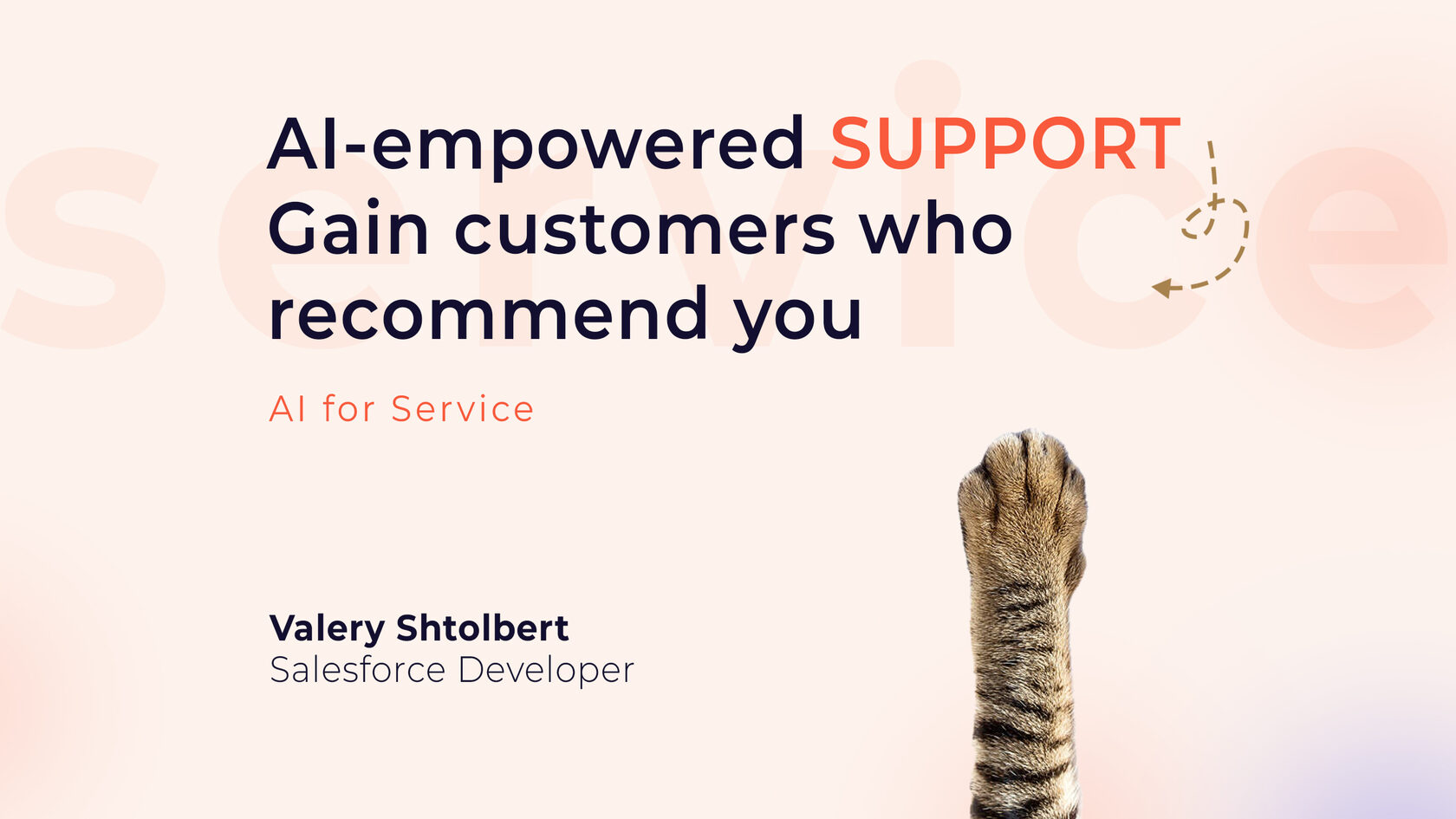This article is prepared by our Salesforce Developer Valery Shtolbert.
The rise of Artificial Intelligence (AI) has revolutionized the way businesses operate, and the Salesforce ecosystem is no exception. One area where AI has made a significant impact is in Salesforce's Service Cloud, a powerful platform designed to enhance customer service and support.
In this article, we will explore the ways in which AI is transforming the Service Cloud, empowering organizations to provide exceptional customer experiences, improve operational efficiency, and stay ahead of the competition. We will delve into the key AI-powered features and capabilities within Service Cloud, and how they can be leveraged to streamline service operations, boost agent productivity, and deliver personalized customer interactions.
In this article, we will explore the ways in which AI is transforming the Service Cloud, empowering organizations to provide exceptional customer experiences, improve operational efficiency, and stay ahead of the competition. We will delve into the key AI-powered features and capabilities within Service Cloud, and how they can be leveraged to streamline service operations, boost agent productivity, and deliver personalized customer interactions.
Generative AI features
One of the most exciting developments in AI for Service Cloud is the integration of Generative AI. Generative AI models, such as those powered by large language models, can engage in open-ended and creative tasks, going beyond traditional rule-based chatbots. Within Salesforce Service Cloud, Generative AI can be leveraged across a variety of features to transform the customer service experience:
Generative AI Conversation Catch Up
This feature provides real-time summaries of active customer conversations to help agents and supervisors quickly get up to speed. When an agent accepts a transferred call or messaging session, or when a supervisor monitors an escalated interaction, the Conversation Catch Up window displays a concise summary of the issue and a more detailed description. This AI-generated information allows users to seamlessly continue the customer interaction without losing context.
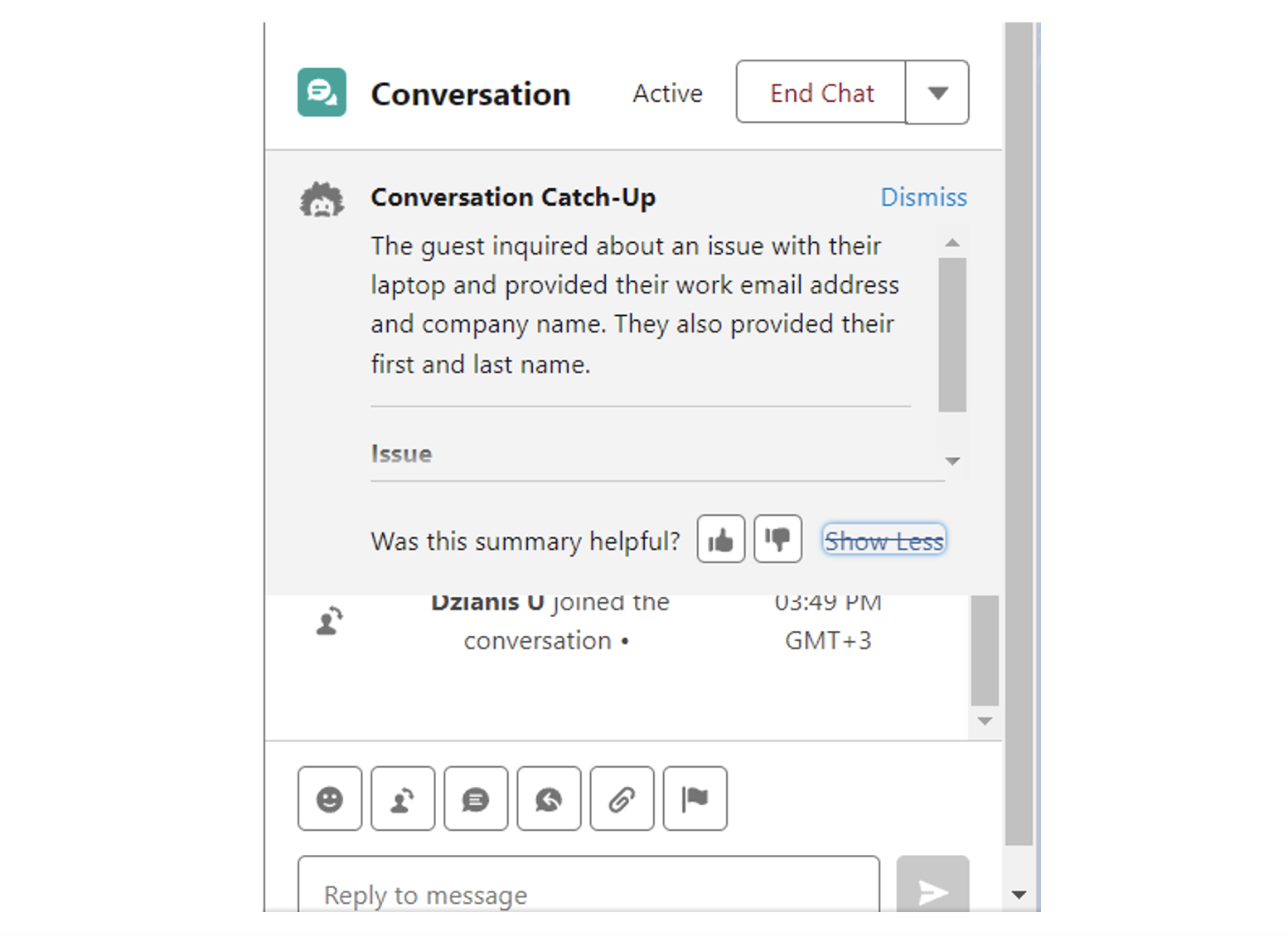
By leveraging Generative AI, Salesforce Service Cloud enables a smooth, continuous customer experience, even when multiple agents are involved in resolving an issue.
Generative AI Conversation Summaries
One of the powerful Generative AI features in Salesforce Service Cloud is the ability to automatically summarize customer conversations and case histories. By leveraging advanced language models, the AI can quickly analyze the context and content of lengthy interactions, extracting the key details and insights.
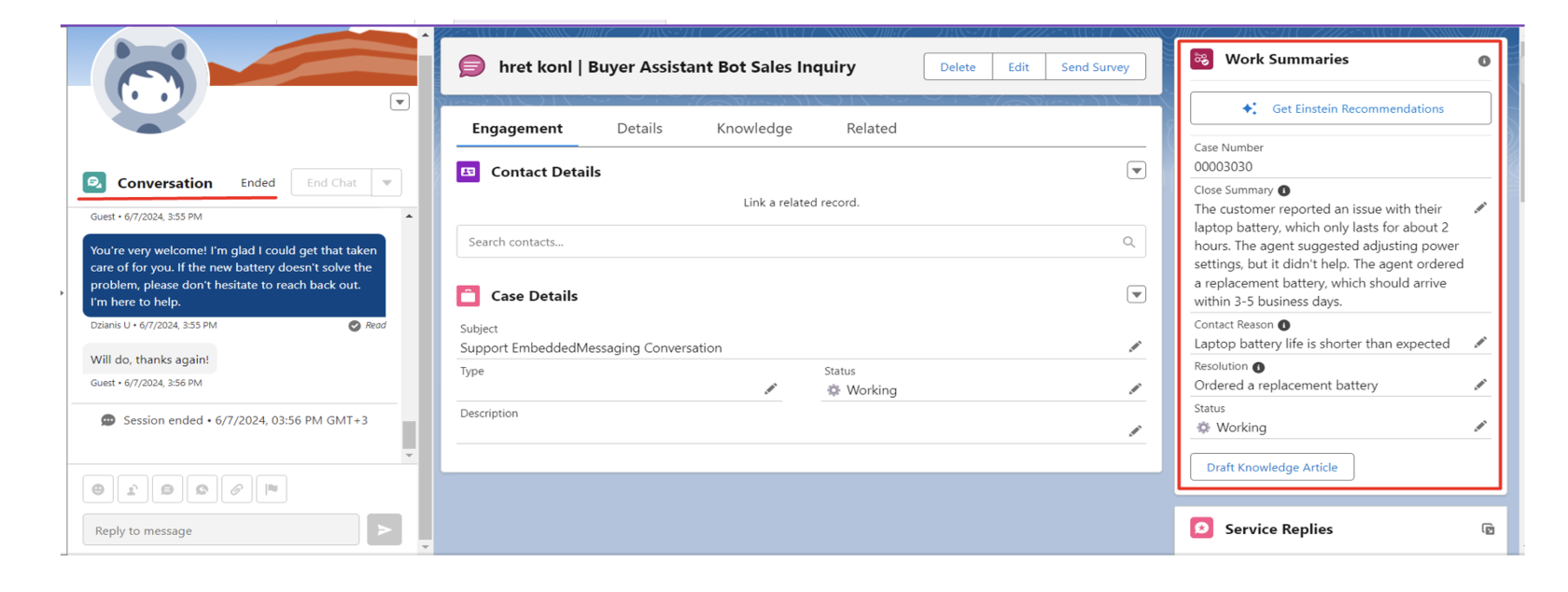
The AI will review the full conversation transcript, understand the customer's concerns and the steps already taken, and then generate a concise summary highlighting the essential information. This allows the agent to rapidly understand the context and provide a more informed, effective resolution.
Generative AI Conversation Summaries save agents considerable time and effort, enabling them to focus on delivering superior customer service rather than sifting through lengthy case histories. These AI-generated summaries ensure that critical details are not overlooked, and that the agent can seamlessly pick up where the previous interaction left off.
Generative AI Conversation Summaries save agents considerable time and effort, enabling them to focus on delivering superior customer service rather than sifting through lengthy case histories. These AI-generated summaries ensure that critical details are not overlooked, and that the agent can seamlessly pick up where the previous interaction left off.
Generative AI Knowledge Creation
AI can automatically generate knowledge base articles after support cases are closed.

The AI pulls relevant information from case notes, message history, and other service data to create the initial article draft. This takes the burden off agents to write articles from scratch.
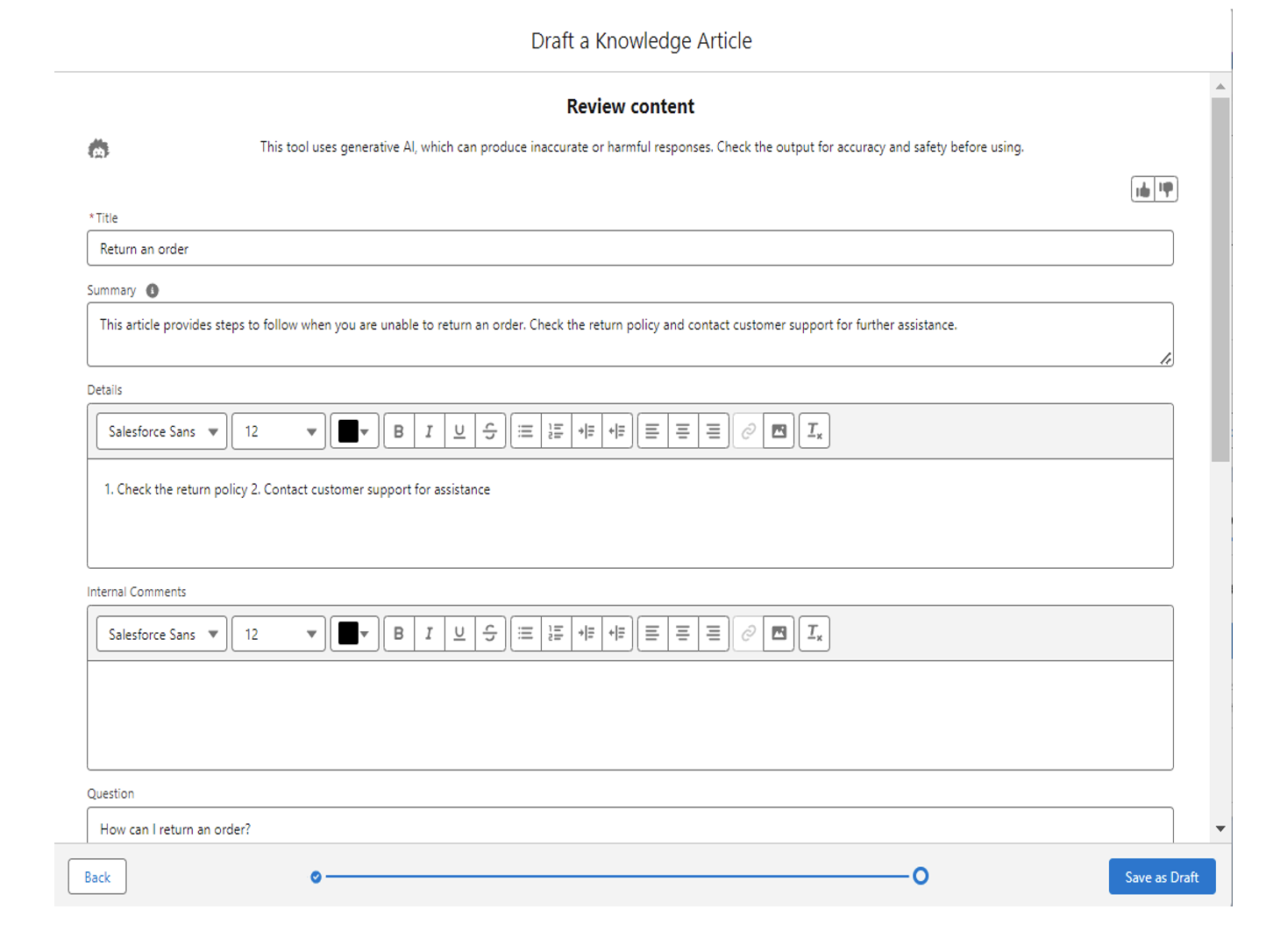
Agents then review the automatically generated article to ensure accuracy and completeness before adding it to the approval queue. This streamlined process allows agents to focus on helping customers rather than getting bogged down in manual article creation.
Generative AI Service Replies
The Generative AI Service Replies feature allows agents to quickly draft replies that are tailored to the specific needs and sentiment of each customer. By understanding the intent and nuance behind the customer's inquiry, the AI can craft responses that address the issue directly, provide useful information, and maintain a friendly, conversational tone.
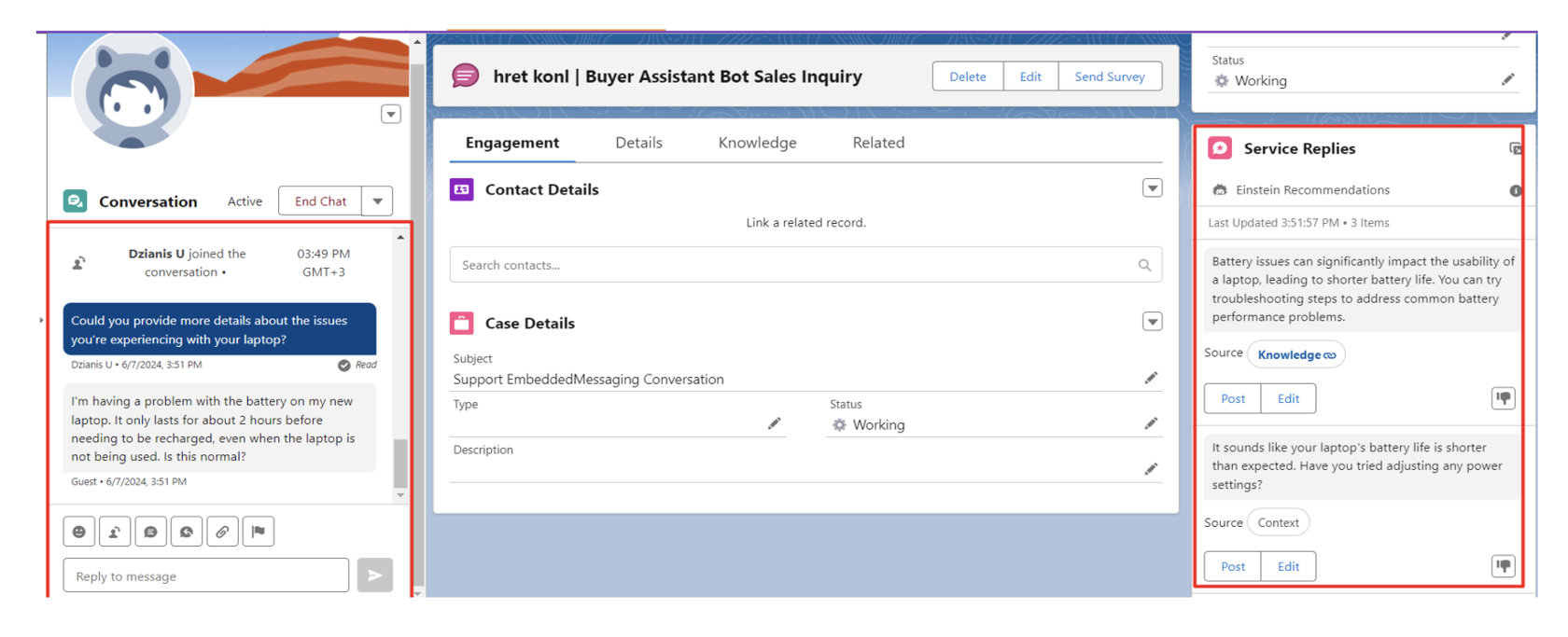
This AI-generated response drafting helps service agents work more efficiently, freeing them up to focus on more complex support cases. The Generative AI replies can also be further customized and edited by agents to ensure they align with the organization's brand voice and customer service standards.
Generative AI Knowledge - Grounded Emails
The Knowledge-Grounded Emails feature in Salesforce Service Cloud takes the power of Generative AI one step further by seamlessly integrating the organization's knowledge base content into automated email responses. It analyzes the customer's inquiry, identifies the relevant knowledge base articles, and then automatically incorporates that information directly into the email draft.
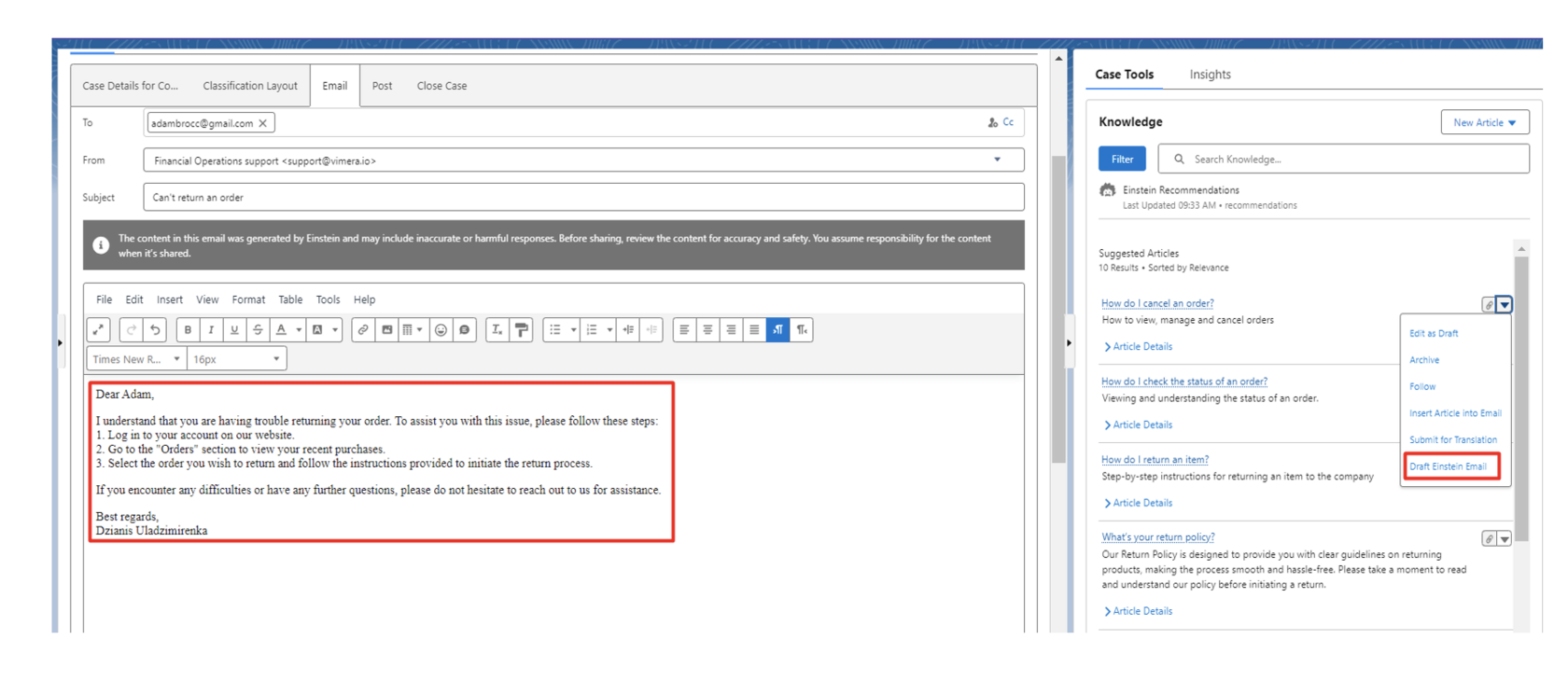
The Knowledge-Grounded Emails feature saves agents time by automating the research and content creation process. It also ensures email communications are consistently accurate, up-to-date, and aligned with the information available in the knowledge base.
Einstein Case Classification and Wrap-up
Salesforce Service Cloud also offers innovative AI features like Einstein Case Classification and Einstein Case Wrap-Up, which leverage machine learning to optimize case handling.
Einstein Case Classification streamlines case creation and categorization by providing intelligent recommendations immediately after a case is logged. This feature uses classification models that are trained on past closed cases, analyzing data patterns in subjects and descriptions as well as the fields to be predicted.
Einstein Case Classification streamlines case creation and categorization by providing intelligent recommendations immediately after a case is logged. This feature uses classification models that are trained on past closed cases, analyzing data patterns in subjects and descriptions as well as the fields to be predicted.
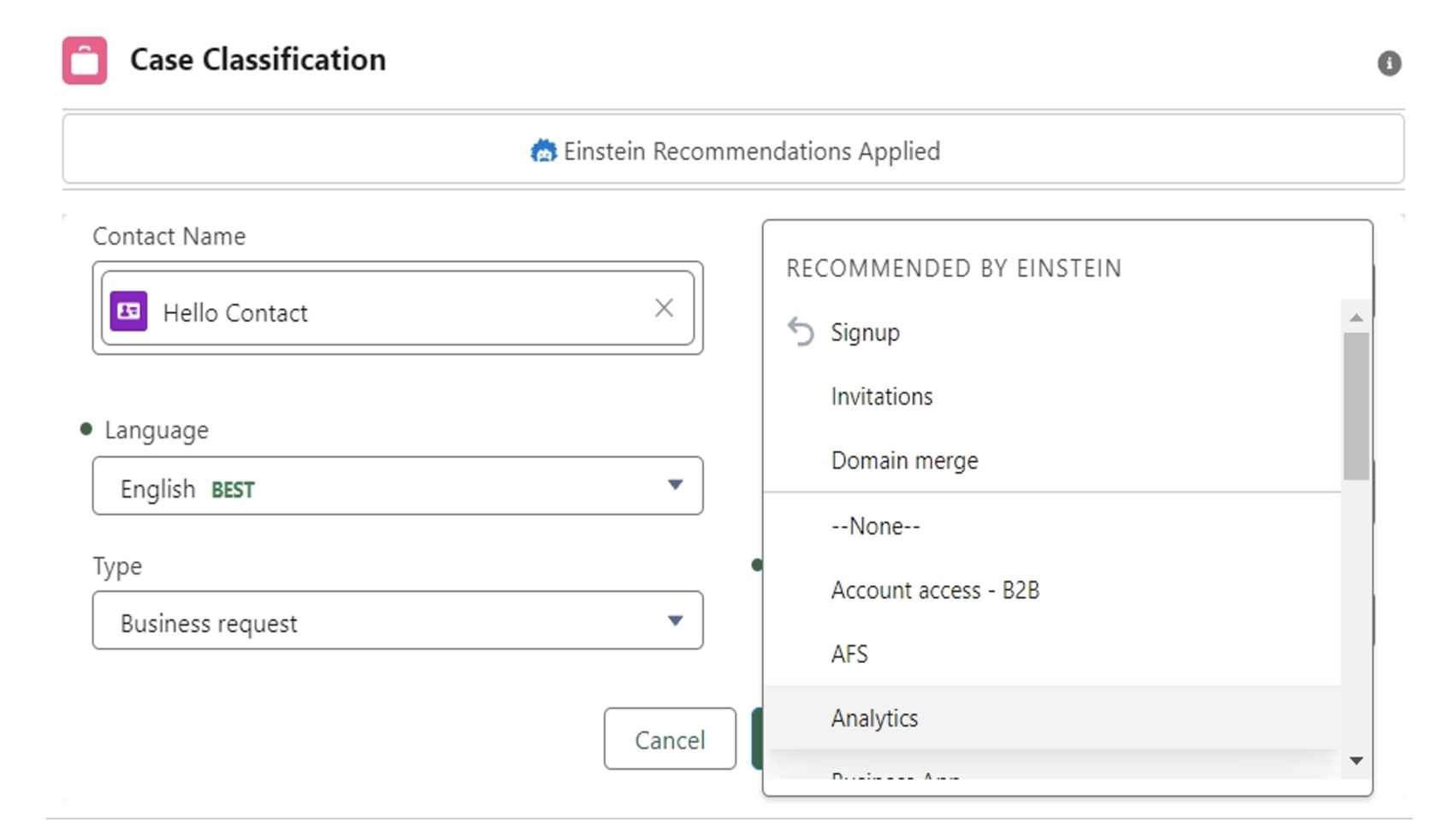
While Einstein Case Wrap-Up aids support agents by presenting case wrap-up options in real time, enhancing their ability to close conversations efficiently. This is particularly useful for chat agents who benefit from suggested fields after a conversation has ended or during ongoing discussions.
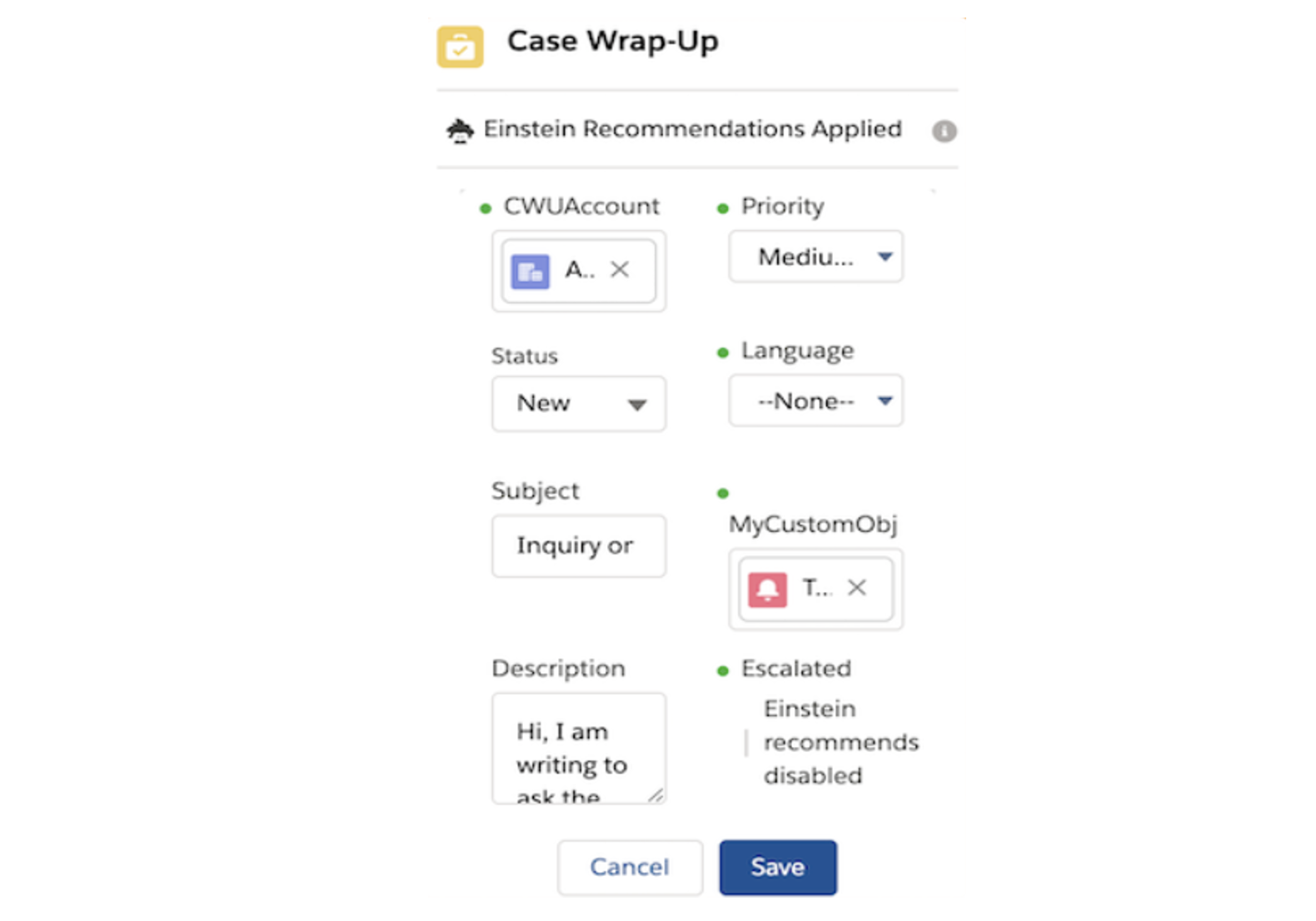
With the Service Cloud Einstein add-on license, you can create up to five tailored models for each classification app, streamlining various aspects of your business. When setting up a model, you can select specific case types to target and utilize optional filters like segments and example cases to refine your closed case data.
During the setup process, you also can select which case fields Einstein should predict. Customize the prediction preferences by setting confidence thresholds that dictate the automation level:
During the setup process, you also can select which case fields Einstein should predict. Customize the prediction preferences by setting confidence thresholds that dictate the automation level:
- Top Values (less automation): Einstein suggests the top three field values, which the agent selects.
- Select Best Value (more automation): If predictions meet the threshold, the best value is pre-selected for agent confirmation.
- Automate Value (full automation): The best value is automatically saved if the prediction meets the threshold.
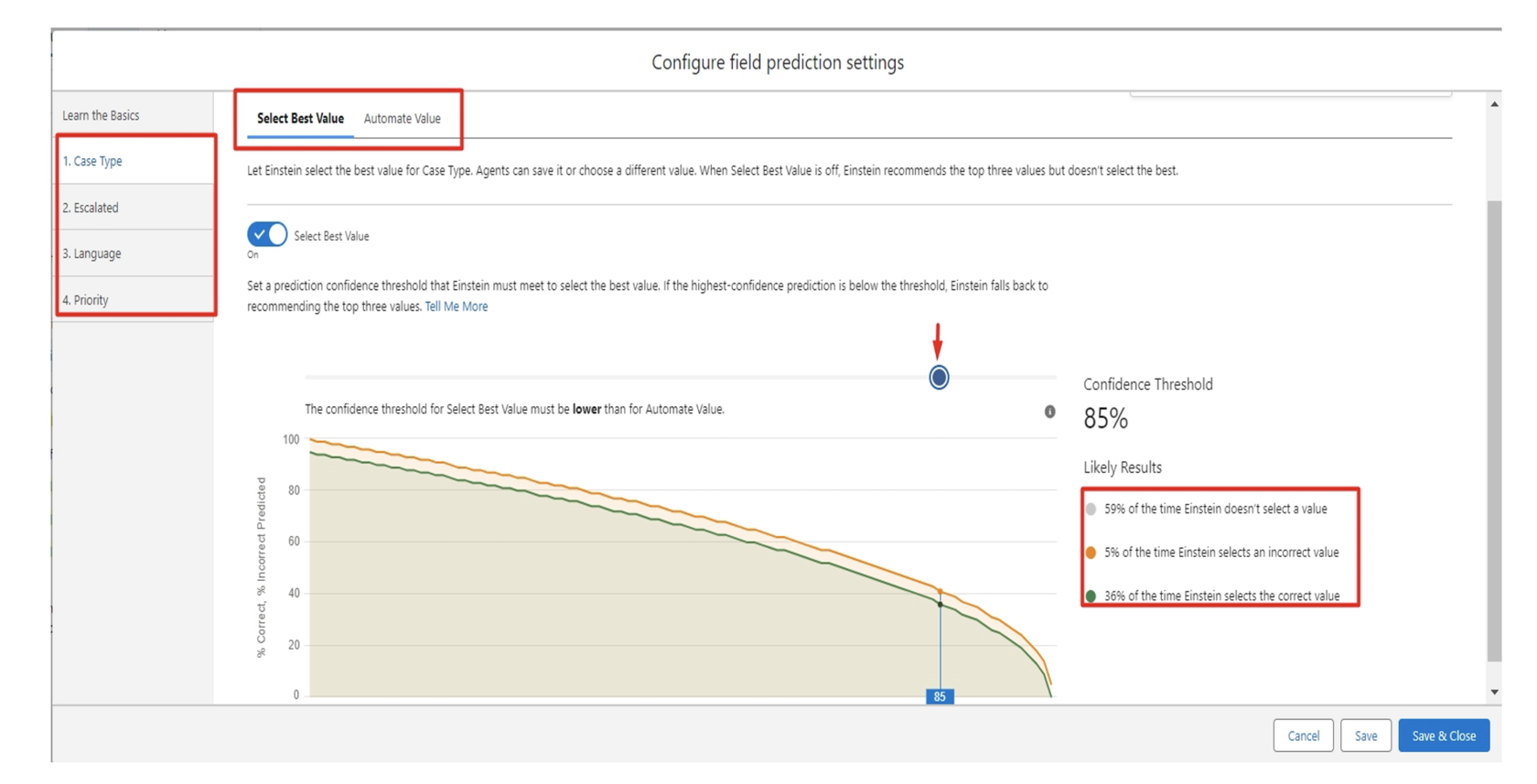
These settings can be adjusted at any time, allowing you to optimize your model without rebuilding it.
Copilot
Salesforce Copilot in Service Cloud serves as a powerful personal assistant for customer service teams, enhancing their ability to deliver exceptional support. By leveraging AI-driven capabilities, Salesforce Copilot offers a range of actions that enhance the capabilities of service agents, making their workflows more efficient and effective. Here’s an overview of the key Copilot actions:
Copilot Summarize Record
This action allows agents to quickly gather key information from customer records. By summarizing details such as previous interactions, open cases, and important notes, Copilot helps agents grasp the context of each situation, enabling them to respond more effectively and personalize their service.
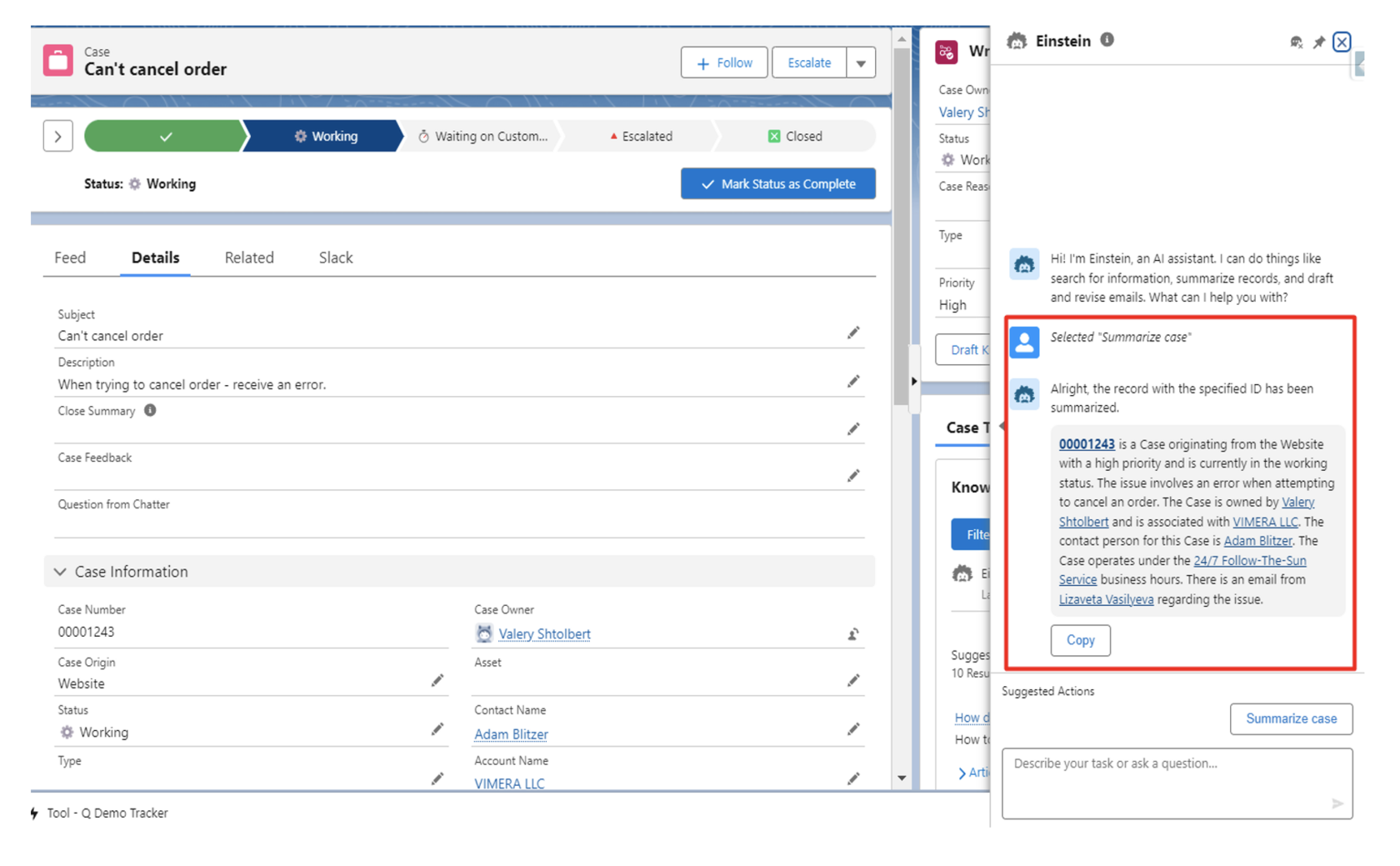
Copilot Answer Questions with Knowledge
By tapping into Salesforce’s vast knowledge base, Copilot can provide instant answers to common questions. This action enhances the efficiency of service agents by giving them quick access to relevant articles, FAQs, and solutions, enabling them to resolve inquiries faster.
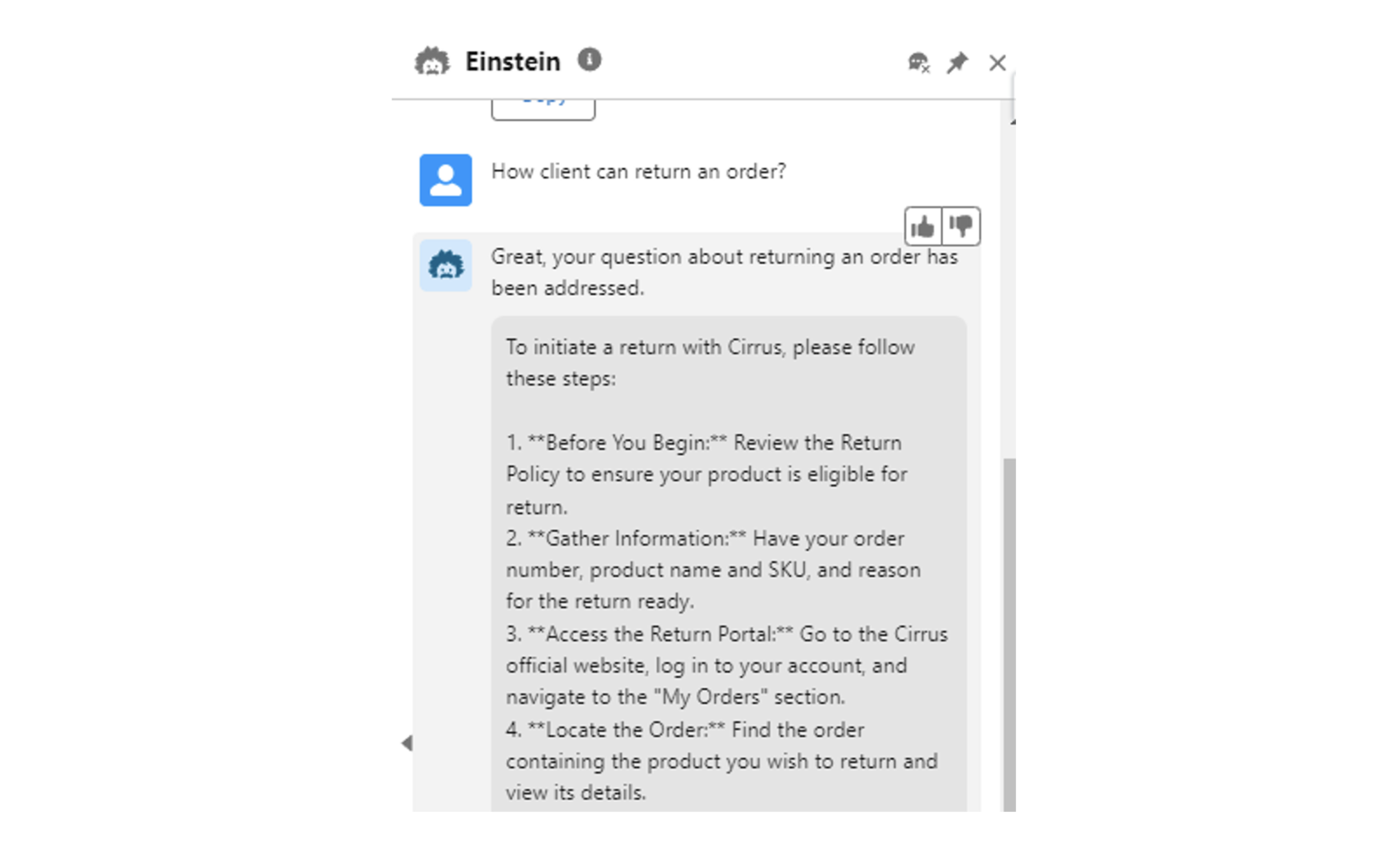

Copilot Query Records
This action facilitates straightforward record retrieval, allowing agents to search for specific cases, contacts, or other data points quickly. With the ability to query records effortlessly, agents can focus on addressing customer needs rather than spending time searching for information.
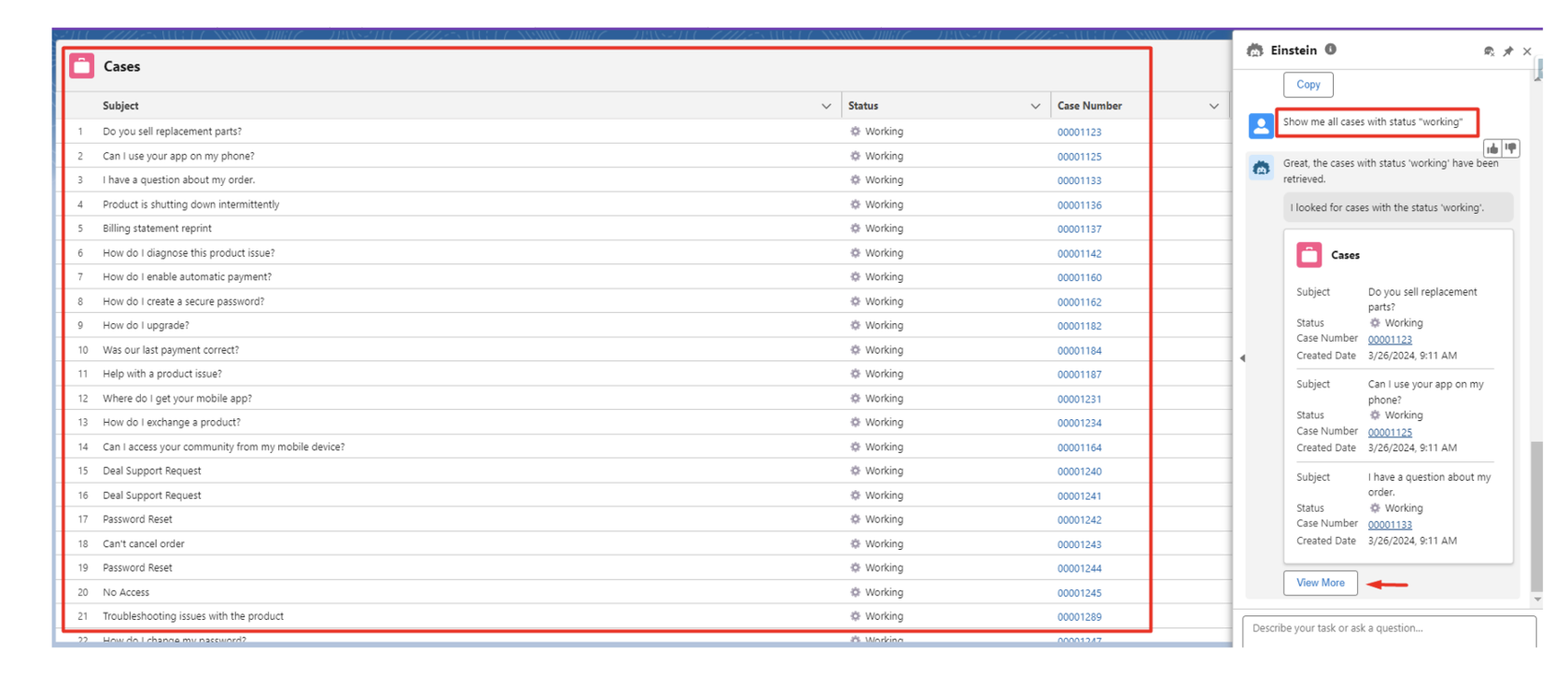
Copilot Query Records with Aggregate
Copilot can perform complex queries to gather aggregated data across multiple records. This feature allows agents to analyze trends, identify common issues, and gain insights at a glance, helping teams make informed decisions and prioritize their efforts effectively.
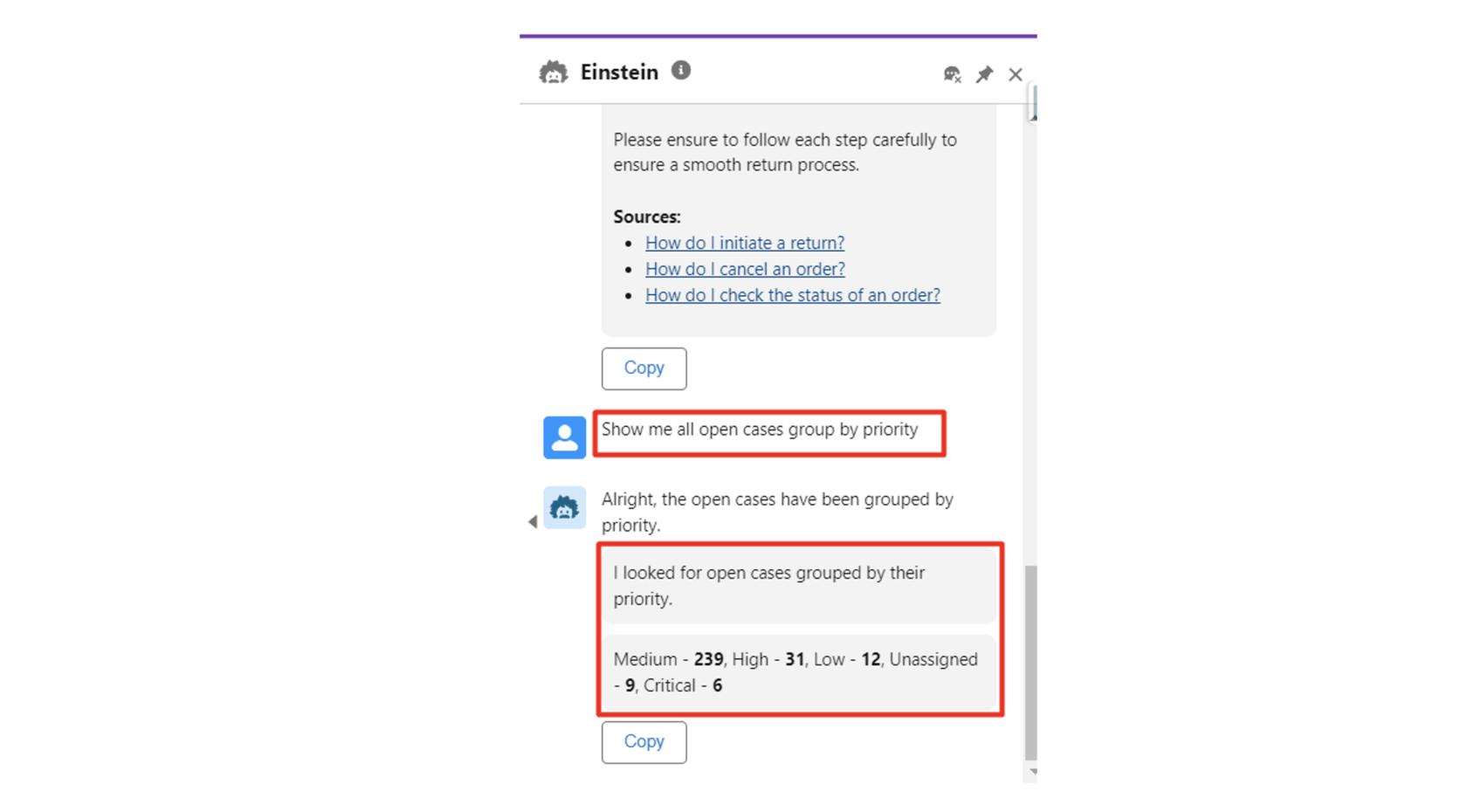
Copilot Custom Actions
Salesforce Copilot also supports custom actions tailored to an organization’s specific needs. This flexibility allows companies to implement unique workflows, automate repetitive tasks, or initiate specific processes, further enhancing the user experience and operational efficiency. For example you can get all cases for a given contact name.
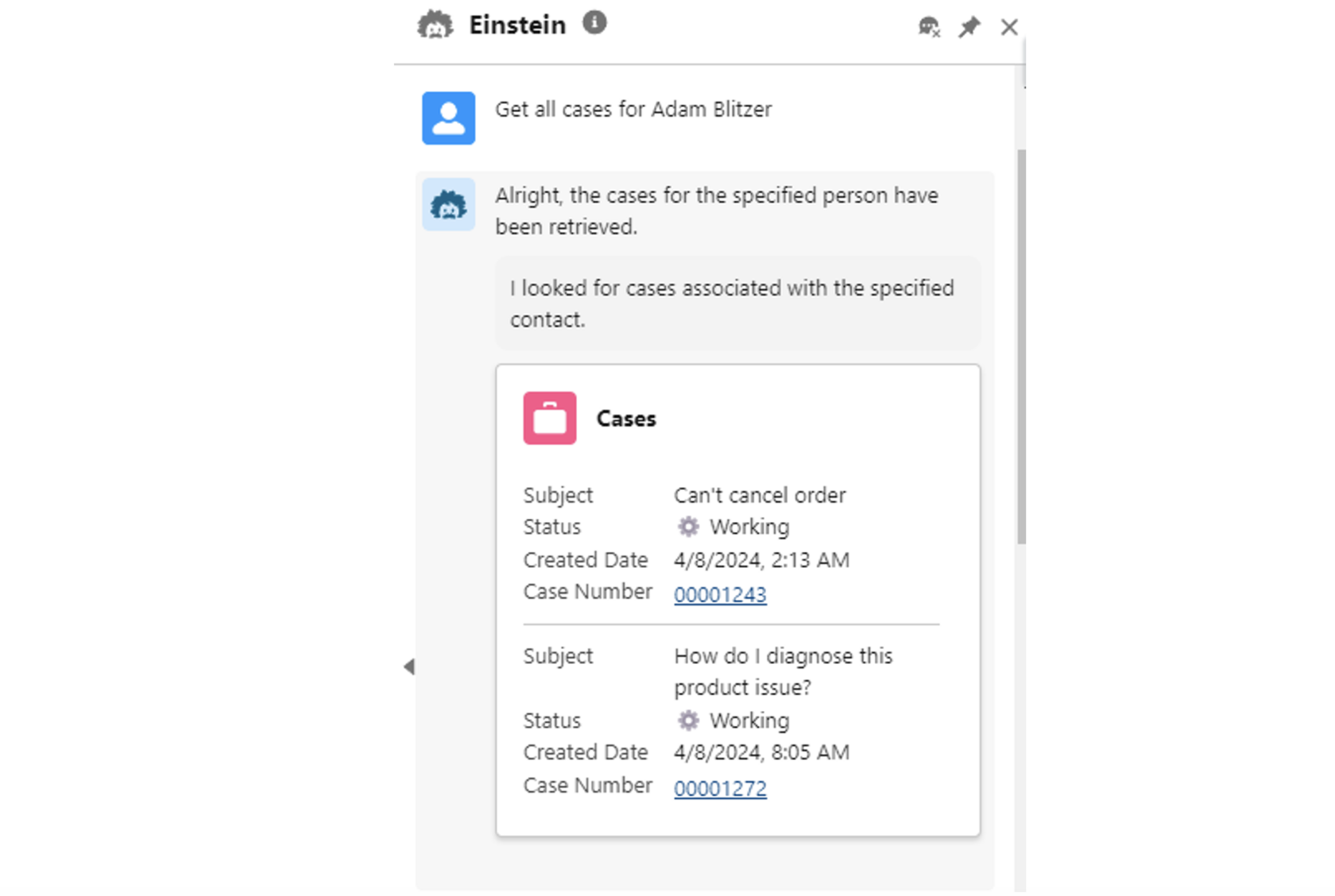
Conclusion
The integration of AI into Salesforce's Service Cloud is fundamentally changing the landscape of customer service. This article focused exclusively on the latest AI innovations, such as Generative AI and powerful tools like Einstein Case Classification and Wrap-Up. These features enhance agent efficiency by streamlining routine tasks, allowing them to devote more time to complex customer interactions.


